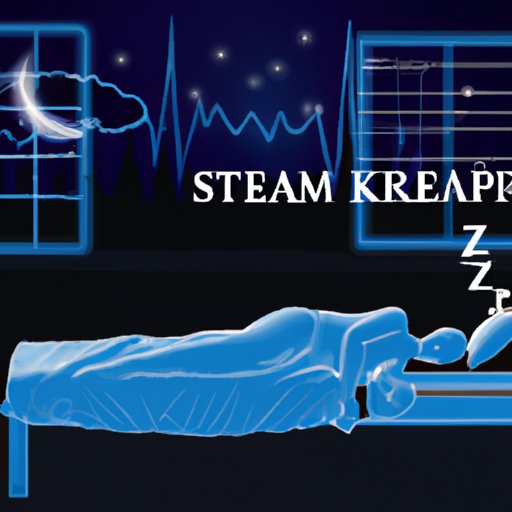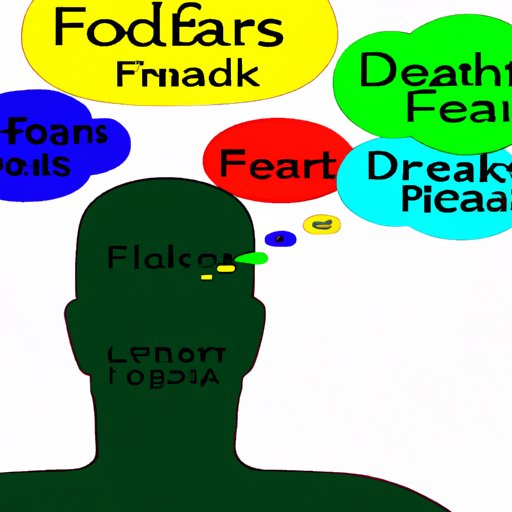Introduction
Dreams are often described as surreal, abstract, and mysterious experiences. For centuries, people have tried to understand what dreams mean and why they occur. Although we still do not know the exact answer to why we dream, science has provided us with many clues. In this article, we will explore the science behind dreaming and examine the different theories of why we dream.
Exploring the Different Theories of Why We Dream
In order to understand why we dream, it is important to consider the different theories that have been proposed by various researchers. One of the most well-known theories was proposed by Sigmund Freud, who believed that dreams were a way of allowing us to express our unconscious desires. According to Freud’s psychoanalytic theory, dreams are a form of wish fulfillment that allow us to act out desires that we would not otherwise be able to express. Carl Jung, another prominent theorist, proposed that dreams were a way of accessing our collective unconscious, which contained archetypes and symbols that could help us gain insight into our lives.
More recently, cognitive theorists have suggested that dreams are a way of helping us process and make sense of information. This theory suggests that dreams are a way of organizing and consolidating memories, which can help us better remember important facts and events. Cognitive theorists also suggest that dreams can help us problem solve by allowing us to think more creatively.
Examining the Role Dreams Play in Memory Consolidation
One of the most widely accepted theories of why we dream is that dreams help us process and consolidate information. Studies have shown that when we learn something new, our brain stores the information as short-term memory. During sleep, this information is transferred to long-term memory and consolidated in the brain. Dreams are thought to play an important role in this process, as they provide us with an opportunity to process and organize the information in a creative and meaningful way.
For example, research has found that people who had studied a list of words before they went to sleep were better able to remember them the next day if they had dreamed about them during the night. This suggests that dreaming helps us to store and consolidate memories, which can improve our ability to remember important facts and events.

Investigating the Relationship Between Emotions and Dreams
Studies have also suggested that dreams can be influenced by our emotional state. Research has found that people who are feeling anxious or depressed may experience more negative dreams, while those who are feeling happy or content may experience more positive dreams. It is thought that this is because our dreams reflect our current emotional state, so if we are feeling negative emotions, our dreams may also be negative.
In addition, studies have suggested that dreams can help us process our emotions and cope with difficult situations. For example, one study found that people who experienced a traumatic event were less likely to suffer from post-traumatic stress disorder if they had dreamed about the event. This suggests that dreams can help us process our emotions and work through difficult situations.

Analyzing the Impact of Sleep on Dreaming
Sleep is another important factor when it comes to dreaming. Studies have shown that different stages of sleep are associated with particular types of dreams. For example, REM (rapid eye movement) sleep is associated with vivid and memorable dreams, while non-REM sleep is associated with more mundane and less vivid dreams. This suggests that our sleep cycles can influence the content of our dreams.

Examining the Link Between Dreams and Mental Health
Dreams can also provide us with insight into our mental health. Studies have shown that certain types of dreams can be used to diagnose mental health issues such as depression and anxiety. For example, people who experience recurring nightmares may be more likely to suffer from depression or anxiety. Additionally, research has suggested that dreaming can be therapeutic for those suffering from mental health issues, as it can help them process their emotions and better cope with difficult situations.
Examining the Neuroscience Behind Dreaming
Finally, scientists have begun to examine the neuroscience behind dreaming. Studies have found that when we dream, different parts of the brain become active. For example, the prefrontal cortex and hippocampus are both involved in dreaming, suggesting that these areas of the brain play an important role in processing and organizing the information we take in during the day.
In addition, research has suggested that dreaming can help us regulate our emotions. Studies have found that the amygdala, which is responsible for regulating our emotions, becomes more active during dreaming. This suggests that dreaming can help us manage our emotions and reduce stress and anxiety.
Conclusion
Dreams are fascinating phenomena that have captivated us for centuries. Although we still do not know the exact answer to why we dream, science has provided us with many clues. By exploring the different theories of why we dream and examining the role dreams play in memory consolidation, emotions, sleep, and mental health, we can gain a better understanding of why we dream. Additionally, by looking at the neuroscience behind dreaming, we can begin to unravel the mystery of why we dream.
(Note: Is this article not meeting your expectations? Do you have knowledge or insights to share? Unlock new opportunities and expand your reach by joining our authors team. Click Registration to join us and share your expertise with our readers.)
